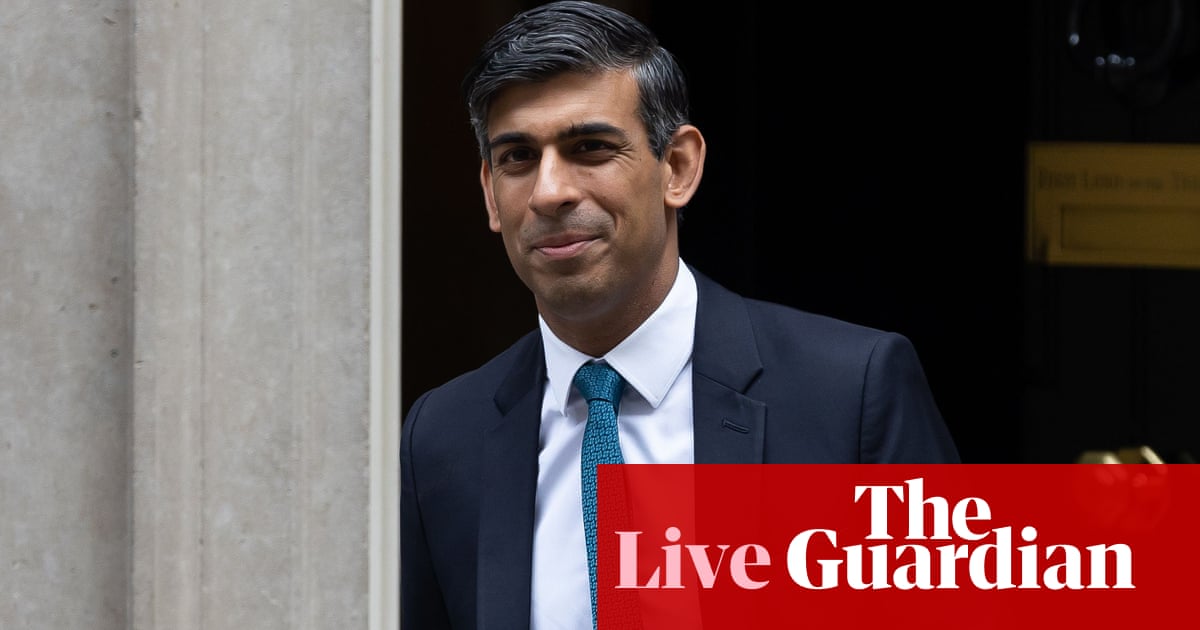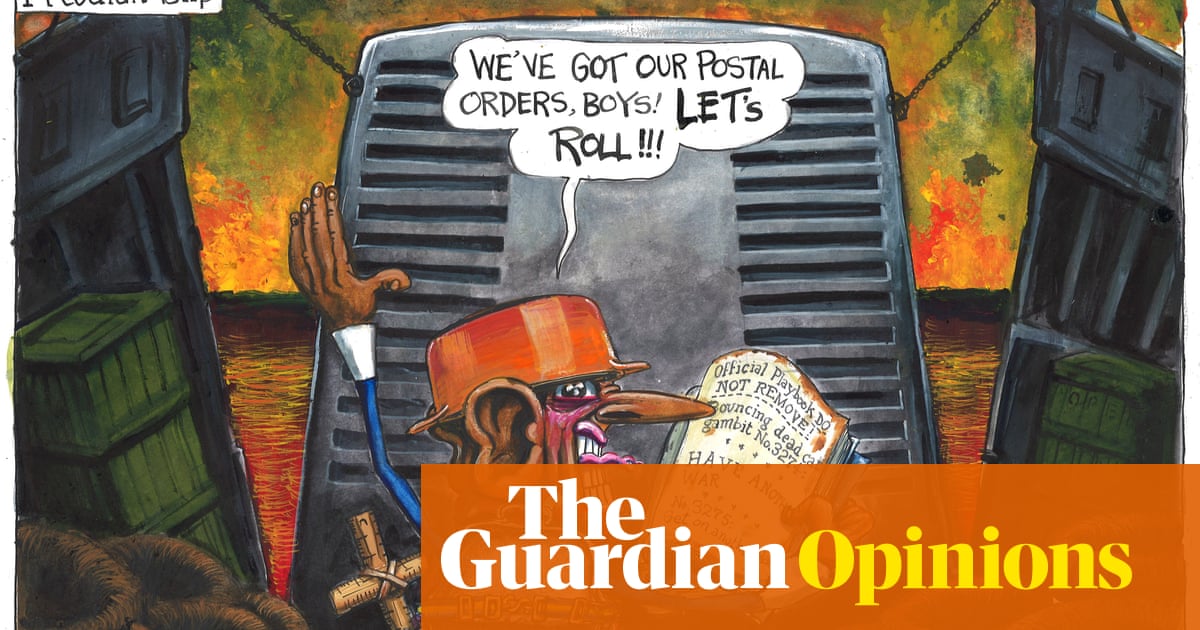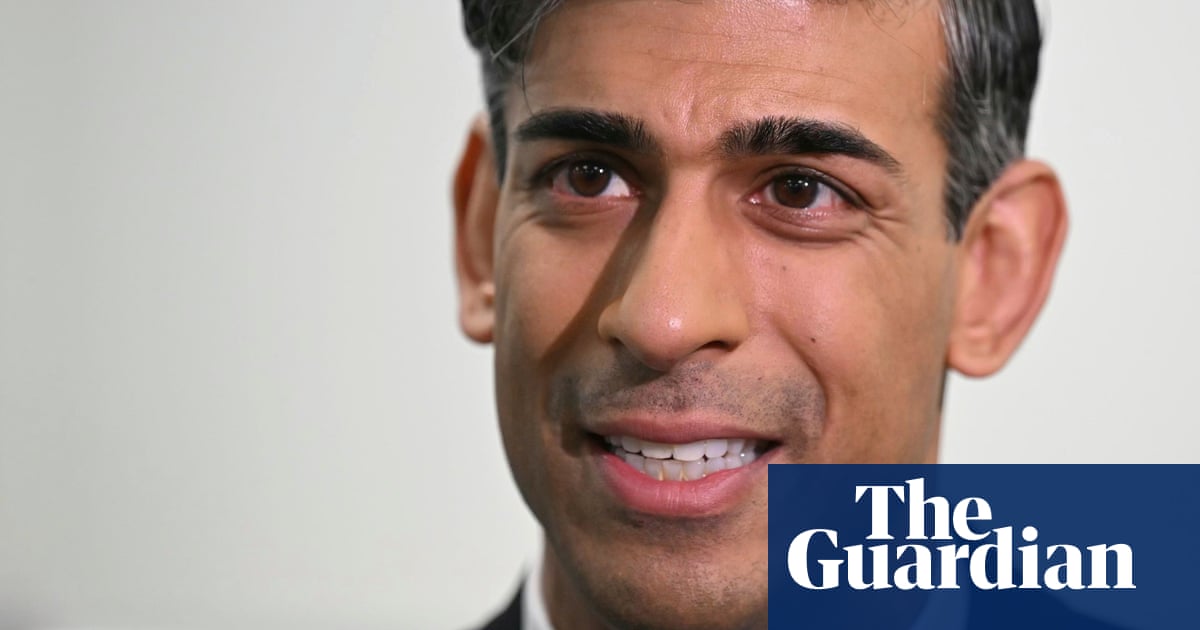
Rishi Sunak needs an “exit strategy” from ongoing industrial disputes to avoid them escalating in the months ahead after overestimating public support for his “1980s playbook” approach to widespread strikes, the incoming TUC general secretary has said.
Paul Nowak, who takes over as Britain’s top union leader next month, predicted the government’s “war of attrition” against the unions would fail and accused ministers of having their “hands over their ears” about the severity of the situation.
He urged the government to negotiate fair pay deals as he ruled out re-writing the remit of pay review bodies for next year – which the government is believed to be considering – as a “starting point” for negotiations because public sector workers need more support to cope with Britain’s cost of living crisis now.
In an interview with the Guardian before starting his new role, he said: “The government is going to have to take responsibility. The public will clearly identify where the responsibility lies.
“Maybe they’ll try and brazen it out until the spring and to the budget but I just don’t think our members are going to sit quietly waiting for that to come. I don’t think promises of jam tomorrow will cut it with people.”
Nowak’s intervention comes as the country faces a further wave of strikes in the new year, with rail, Border Force nursing and ambulance workers expected to take more action, bringing parts of the public sector to a standstill. More days were lost to strikes in October than for a decade and the industrial action has intensified since then.
Downing Street insisted on Wednesday that there was no need for the prime minister to get personally involved in the issue and it was not for the government to get involved in negotiations on pay.
Rishi Sunak’s deputy official spokesperson said: “What we can’t do is allow for double digit pay rises that will embed inflation going forward … The prime minister wants to see employers and unions reach a fair agreement. We believe in terms of rail that there is an [offer] on the table that is there for unions to agree.”
The new TUC leader rejected the prime minister’s claim that the country could not afford pay rises for public sector workers because of inflation, suggesting business profits, dividends and City bonuses were responsible for driving that up instead. Some unions have now indicated they could accept an improved pay deal below inflation.
“If you’re in the public services feeling hard-pressed it feels like the only solution being put forward by government is that you’re expected to show a little bit of pay restraint. You’re the one supposed to suffer. It doesn’t feel like this is a burden fairly shared across the country,” he added.
The TUC is gearing up for a second battle with the government in early January as ministers prepare to push anti-strike legislation through parliament, which would ensure minimum service levels on transport networks – and potentially other services – during strikes.
Nowak warned that unions would be willing to pursue legal action, right up to the European court of human rights, to guarantee workers’ right to strike. “We wouldn’t rule anything out, I think we’re prepared to take it on politically and legally,” he said.
“It is potentially for us a claim to the ECHR. We won’t leave any legal stone unturned. We’ll have to see what the actual proposals are but I think there would be a real appetite among our unions to take on the government in the courtrooms.”
The TUC chief said he believed it was “all still to play for” as he urged ministers to sit down with union leaders and negotiate a fair settlement. This should be “something that recognises that there’s a particular set of pressures on people right now”, he added, pointing to private sector firms that had offered one-off payments, reopened pay negotiations and brought pay rises forward.
However, he ruled out the government focusing on simply changing the remit for pay review bodies next year, as ministers have hinted they could do, as it failed to address the urgency of the situation. And he criticised them for “hiding behind” the bodies for this year’s below-inflation offers, despite the fact they set the remit.
“I don’t think that just looking at the remit for next year would be an acceptable starting point. The reality is our members in public services are facing real pressures right now on their family incomes.
“I don’t think our members can wait that long and I don’t think they’re going to be prepared to sit on their hands until the budget and then any subsequent pay review process in order to try to secure a decent outcome on pay.”
Nowak suggested that Sunak, a millionaire, and his cabinet failed to understand the pressures faced by people during the cost of living crisis. “I don’t think it’s just him. We’ve got a cabinet of people that don’t rely on public services in a way that the vast majority of people do. Do they send their kids to state schools? Are they reliant on public hospitals? Wealth can insulate you against lots of things.”
TUC analysis shows that UK workers have lost an average of £20,000 in real wages since 2008 due to pay not keeping up with inflation, the equivalent of £1,450 a year. The pay squeeze has been even worse for some, with nurses losing an equivalent of £42,000, or £3,000 a year, and paramedics £56,000 or £4,000 a year.
There is more pay misery ahead with estimates that average earnings are set to fall by £79 a month in real terms over the course of 2023, and public sector pay by £100 a month – with pay levels not expected to recover to their 2008 level until 2027.
Nowak defended the union campaign for the national minimum wage, which is currently £9.50 and goes up to £10.42 in April, to increase to £15 an hour as soon as possible, as part of wages rising across the piece. Nowak claimed the proposal was “very realistic” after being told the target of reaching two-thirds of median earnings was too ambitious, yet will be achieved by April 2024.
Recent polls suggest that more people blame the government than the unions for the wave of strikes, with support for NHS workers particularly high. “They thought this was one straight from the 80s playbook where they could drive a wedge between groups of working people,” Nowak said.
“They have overestimated the level of support they’d have on this and that’s part of the reason why they now need to think: what’s our exit strategy?. At the moment they’ve got their hands over their ears, refusing to listen to what their own workforce, public servants, are telling them.”
He defended the rail unions, despite public support for RMT action falling, accusing the government of “sabotaging” a deal by making driver-only trains an 11th hour pre-condition of any deal when they would be impossible to achieve within the lifetime of existing franchises.
“It was deliberately provocative and was, I think, deliberately designed to undermine any potential settlements … There is no way that would be possible and the government knows that,” he said.
The TUC has had “no contact” from Sunak or other senior ministers, despite working together during the pandemic. “It seems a long way away from us being invited round for bacon butties with Boris Johnson and his little dog. He didn’t learn, and the government didn’t learn, lessons about the value of working together to address a national crisis.”












